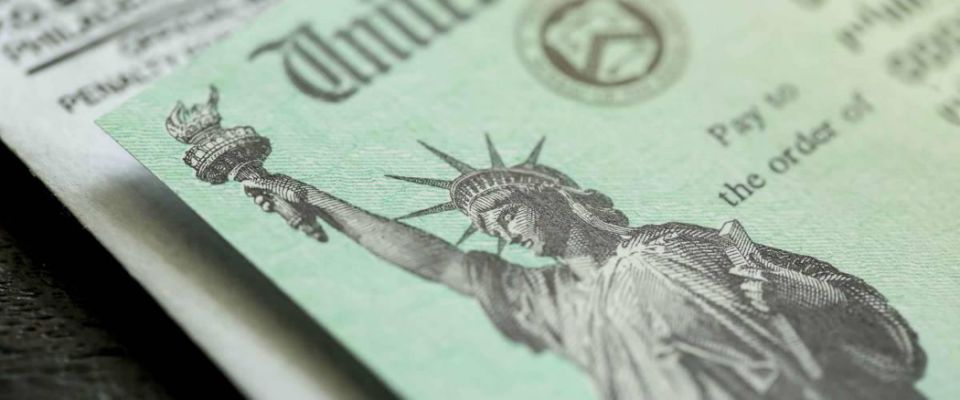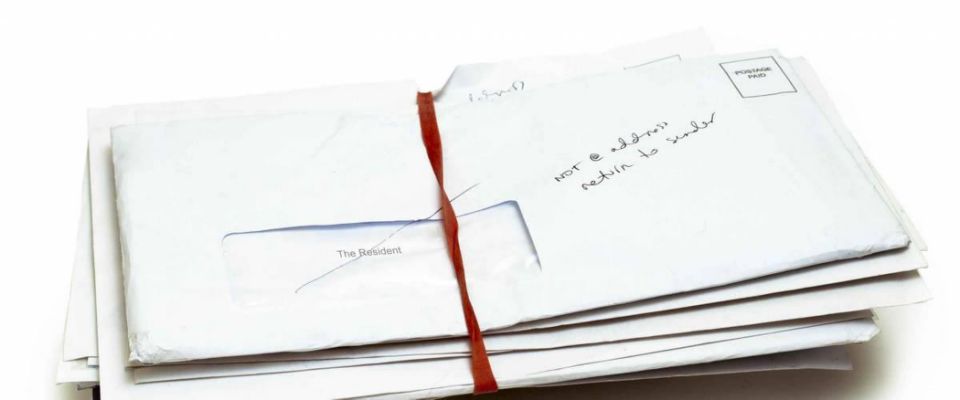The IRS says it has so far distributed about 127 million of the pandemic’s third stimulus checks, worth up to $1,400 each. The tax agency says Americans have received roughly $325 billion in direct relief payments from the $1.9 trillion COVID rescue package that President Joe Biden signed into law earlier this month.
But none of that means a whole lot if you’re still waiting for your money — and are eager to use it to pay bills, reduce your debt, save or invest.
What’s happened to your stimulus check? Here are eight potential reasons for your frustrating delay.
1. The stimulus checks are going out in ‘batches’

The IRS is currently in a colossal bit of multitasking — up to its eyeballs in both tax returns and the millions of stimulus checks.
Rather than completely overwhelm itself and risk creating an ugly backlog of payments, the tax agency has opted to deliver the stimulus funds in batches.
The second batch, totaling $83 billion, started making its way to Americans on March 19. This latest wave of payments includes approximately 17 million direct deposits, plus 15 million paper checks and 5 million debit cards that have to be mailed. And that takes even more time.
2. Retired? Bureaucracy bogged down your payment
As of Friday, 30 million lower-income Americans who receive Social Security or other federal retirement benefits still had not gotten their stimulus checks.
The Social Security Administration was supposed to share its information with the IRS, so people on Social Security could collect their relief money. But according to media reports, that transfer between the agencies didn’t happen until Thursday, following public pressure from members of Congress.
So the IRS now has what it needs, but it’s not clear how long it will take for the payments to go out to the millions of Social Security beneficiaries who got left behind.
3. You moved or changed your bank account

Moving can be a hectic time. Notifying the IRS of your new whereabouts may not have been at the top of your list of priorities when you were packing, but if you still haven’t updated your address with the agency, it will send your check to wherever it used to send your tax refunds.
And if the IRS has indeed sent your payment to an old address, the check will need to be reissued. Which will mean a longer wait.
Or, if you recently switched bank accounts, the IRS won’t have your new account information on file until you provide it. When you’re scheduled to receive a direct deposit and the IRS doesn’t know where to send it, you’ll have to wait for a paper check or debit card to show up in the mail. And that could take weeks.
4. A debt collector snatched your money
If you haven’t seen your stimulus money, it could mean someone else hasn’t beaten you to the punch. The previous two relief payments were off limits to debt collectors, but not the most recent one.
Because Biden’s relief bill was fast-tracked through Congress using a convoluted budget process, a legislative loophole allows creditors to garnish your stimulus check. The cash can be seized to pay several kinds of debt, though not tax debt or back child support.
If you’re at risk of losing your stimulus payment because of overwhelming debt, a lower-interest debt consolidation loan can help you take better control over what you owe — and pay it off more quickly.
5. You’re getting a paper check or debit card

Americans in line for direct deposits will almost surely receive their payments before those slated to get debit cards or good ol’ paper checks, which can take weeks to reach their intended recipients.
Not sure how your payment will be distributed? You can use the IRS “Get My Payment” tool to see how your money is being delivered and whether it has been sent.
If the tax people have you down to receive a check or debit card, be careful you don’t accidentally throw away your envelope from the IRS. When the first $1,200 stimulus checks went out last year, some recipients mistook their mailed checks or debit cards for junk mail — and tossed them.
6. You didn’t taxes file taxes last year — or the year before
Not everyone is required to file federal income taxes every year. For example, if someone brings in less than $12,400 a year, doesn’t have additional self-employment income, is single and under age 65, they don’t have to file a tax return for 2020.
But if you haven’t gotten yourself onto the IRS’ books recently, and you’re not a Social Security or railroad retirement beneficiary, the tax agency won’t have a record of your stimulus check eligibility.
You can use a reliable tax software program to get yourself on the IRS’ radar. When you’ve got money coming, thatt’s not a bad place to be.
7. Your bank may be holding up the money

In at least some cases, the IRS is apparently “future dating” the payments, similar to the way a consumer might post-date a check. And, your bank may not make your stimulus check money available to you until the tax agency’s official payment date.
That was the case for customers of JPMorgan Chase and Wells Fargo, who didn’t receive the cash in their accounts until days after it was distributed. The banks said they were observing the IRS “effective date” for the payments, but some people threatened to close their accounts in protest.
Speculation is heating up over whether there will be a fourth stimulus check, but don’t count on it. So use your $1,400 wisely — maybe by putting it to work using one of today’s popular investing apps.
8. You don’t qualify for a stimulus check anymore
After already spending trillions of dollars on propping up the U.S. economy during COVID-19, Congress took a more measured approach when debating what should be included in this latest round of stimulus.
This time around, individuals making more than $80,000 and couples earning over $160,000 get bupkus. Eligibility is based on adjusted gross income, which is a household’s taxable income before subtracting the standard deduction or itemized deductions.
The previous thresholds for getting a stimulus check were $100,000 for single taxpayers and $200,000 for couples who file jointly.
What if your money is missing — and you need it now?

If it appears your stimulus check will be delayed, or if the new income guidelines mean there won’t be any cash for you, there are several options if you seriously need the $1,400 today.
-
Slash your insurance bills. Car insurance companies have been handing out discounts to drivers who are on the road less through the pandemic. Not yours? Sounds like it’s time to shop around for a better deal from a more flexible provider. And while you’re at it, you could save hundreds on homeowners insurance by comparing rates to find a lower price.
-
Reduce your mortgage payments by refinancing. Mortgage rates remain historically low, and refinancing your existing mortgage could reap big savings. The mortgage technology and data provider Black Knight reports that 11.1 million homeowners are still good refinance candidates, meaning they could cut their monthly payments by hundreds of dollars with a new loan.
-
Trim your budget and “make your own” stimulus check. By finding a few creative ways to cut back, you might rearrange your budget to find another $1,400. Use cloth instead of paper napkins, refill water bottles instead of buying bottled water, and use your own coffee cup to get a discount at your local cafe. Have a hobby or special talent? Turn it into a side income. And, download a free browser extension that will automatically hunt for better prices and coupons when you shop online.






